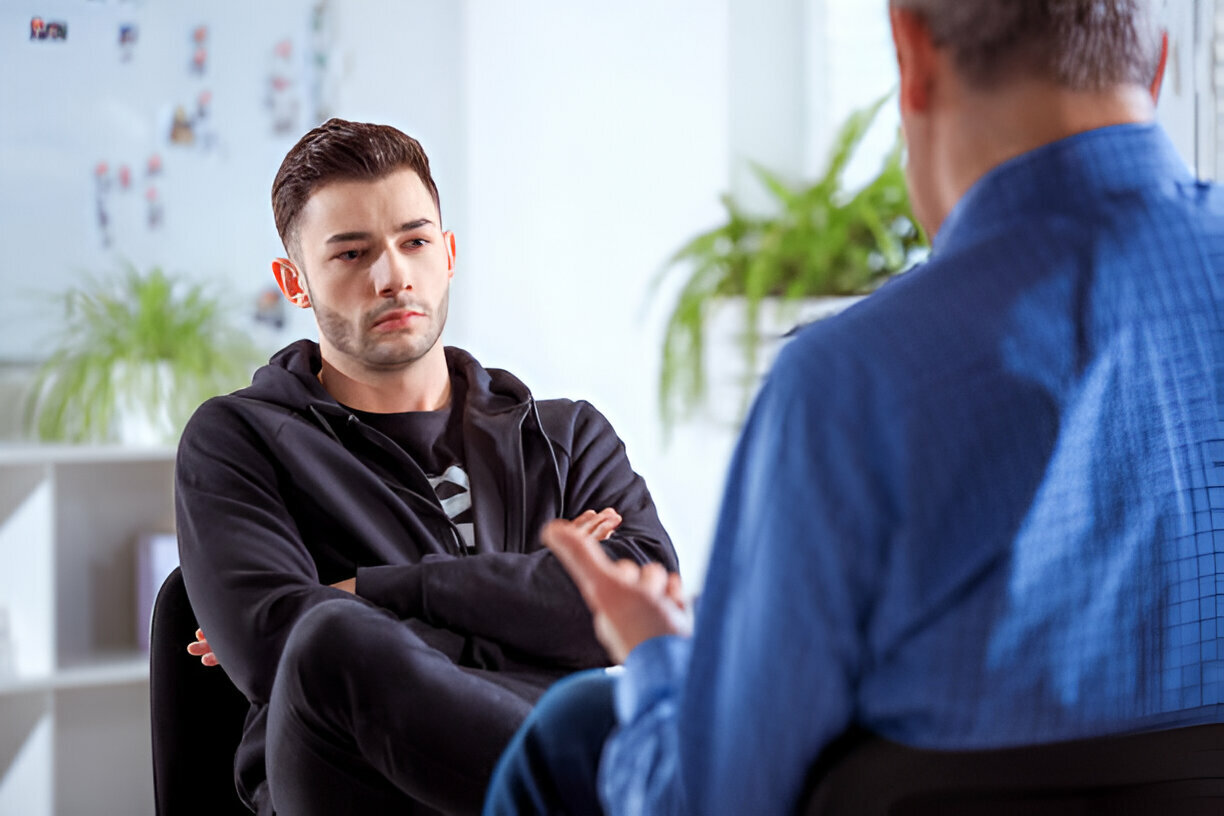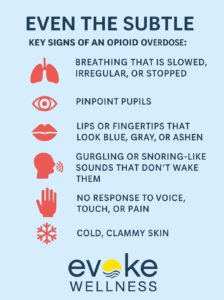If you’re reading this, it probably means you’re scared—and not in the general “parenting is hard” kind of way.
You’re scared your child might not survive the week. You’re scared you’ll find them unconscious. You’re scared you’re already too late. And you don’t know what to do with that fear except keep it quiet so you can function.
This post isn’t going to sugarcoat anything. But it is going to help.
We’re here to give you real, practical, compassionate tools to reduce the risk of overdose and to help you understand when—and how—to take the next step toward treatment.
Know the Signs of Opioid Overdose—Even the Subtle Ones
An opioid overdose doesn’t always look like it does in the movies. It can be quiet. It can look like sleep. But underneath it, the body is shutting down.
Here are key signs of an opioid overdose:
- Breathing that is slowed, irregular, or stopped
- Pinpoint pupils (very small, constricted)
- Lips or fingertips that look blue, gray, or ashen
- Gurgling or snoring-like sounds that don’t wake them
- No response to voice, touch, or pain
- Cold, clammy skin
If you’re not sure, treat it like an overdose. Time matters. Seconds matter. Don’t wait for certainty.
Keep Naloxone (Narcan) On Hand—And Learn to Use It
Narcan is a nasal spray that reverses opioid overdoses. It’s safe, fast-acting, and can buy you critical time while help is on the way.
Where to get Narcan in Massachusetts:
- Most pharmacies (no prescription needed)
- Harm reduction organizations
- Health departments or community events
- Some treatment centers, including Evoke Wellness at Cohasset
Using it is simple:
- Tilt the person’s head back
- Spray one dose into one nostril
- If no response in 2–3 minutes, spray again in the other nostril
- Call 911 immediately and stay with them
You may never need it. But if you do, it’s a moment that can mean life or death.
Harm Reduction Doesn’t Mean You’re “Helping Them Use”
Parents often feel torn between protecting their child and holding a boundary. But here’s the truth: keeping your child alive is not enabling them. It’s protecting them while you fight for a better path.
Harm reduction includes:
- Keeping Narcan nearby
- Knowing who your child is with
- Talking about treatment options even if they say no
- Not providing money that might be used for substances
- Staying connected even when communication is hard
You’re not ignoring the problem. You’re buying time until the next window for help opens.
What to Do During (or After) an Overdose
If you think your child has overdosed:
- Call 911 immediately. Use the phrase “possible opioid overdose.” Be direct.
- Administer Narcan if you have it. Give a second dose if there’s no improvement.
- Perform rescue breathing or CPR if trained.
- Stay with them until EMS arrives. You are protected under Massachusetts’ Good Samaritan Law.
Even if they “wake up” and say they’re okay—get them medical care. Fentanyl is often mixed with other substances and can cause a second wave of symptoms.
Don’t Wait for Rock Bottom—Call Sooner
You may be waiting for the right moment to bring up treatment. For the crisis that finally wakes them up. But with fentanyl in the picture, the risk is too high to wait.
At Evoke Wellness at Cohasset, we don’t require rock bottom. We just need a window of willingness.
We treat:
- Prescription opioid misuse
- Fentanyl and heroin addiction
- Dual diagnoses (mental health + substance use)
- Clients in crisis, post-overdose, or returning to care
Our team helps parents create safe, realistic action plans—even if your child isn’t ready yet. Because the next window could be hours away. Or it could be now.
If They Say “No” to Rehab, You’re Not Powerless
Rejection is hard. But don’t mistake it for defeat.
If your child says no to treatment:
- Call a provider yourself to get prepared
- Set boundaries that protect you, not punish them
- Connect with other parents who understand this world
- Have a safety plan in place for future overdoses
- Keep offering the invitation to get help
People say yes to treatment at unpredictable times. That yes often happens after a crisis—but only if someone’s ready to catch them.
Parent Story
“I thought I had to wait for my son to hit bottom before calling. But when he overdosed, I was the one with the Narcan. And the number to a place that could take him. He’s alive today because we were ready—even when he wasn’t.”
— Mother of a former client, 2022
FAQs: Overdose Prevention and Opioid Addiction Treatment
What’s the first thing I should do if I suspect an overdose?
Call 911, administer Narcan, and stay with the person. Describe it as a “possible opioid overdose” to emergency responders.
Will I get in trouble for having Narcan or calling 911?
No. Massachusetts has a Good Samaritan Law that protects you from legal consequences when seeking help for an overdose.
Can I force my adult child into treatment?
In most cases, adults must consent to treatment. However, in Massachusetts, there are limited emergency commitment options (Section 35), and our staff can help you understand them.
What if my child refuses help again and again?
That’s common. Keep preparing, connecting, and leaving the door open. Sometimes it takes multiple crises before someone says yes—and your persistence may save their life.
Does Evoke offer support for families, too?
Yes. We provide family therapy, education, and emotional support as part of our opioid addiction treatment program.
You Are Not Powerless—Even in Crisis
No one hands you a manual for this. But there are people who know what to do next.
Call 866-931-6429 to learn more about our opioid addiction treatment services in Cohasset, MA. Whether your child is ready or not, you can take the next step.





